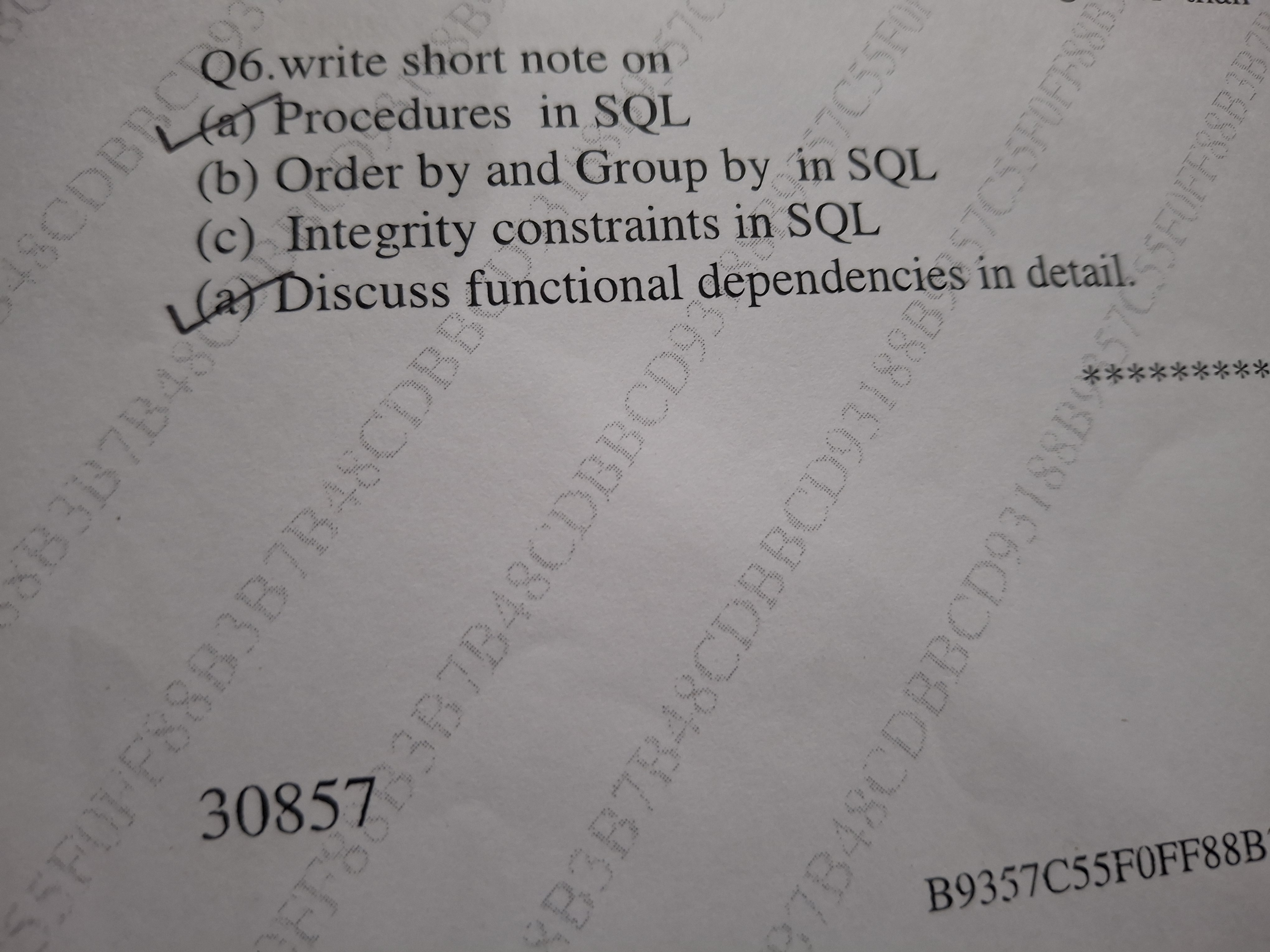Write a short note on procedures in SQL. (b) Explain the ORDER BY and GROUP BY clauses in SQL. (c) Discuss integrity constraints in SQL. (d) Discuss functional dependencies in deta... Write a short note on procedures in SQL. (b) Explain the ORDER BY and GROUP BY clauses in SQL. (c) Discuss integrity constraints in SQL. (d) Discuss functional dependencies in detail.

Understand the Problem
The question is asking for a short note on procedures in SQL, explanations of the ORDER BY and GROUP BY clauses, details on integrity constraints in SQL, and a discussion on functional dependencies. This implies a need for both definitions and examples to illustrate these concepts.
Answer
Procedures automate tasks; ORDER BY sorts results; GROUP BY groups results; integrity constraints ensure data accuracy; functional dependencies manage relationships.
(a) Procedures in SQL are scripts that perform collections of SQL statements and logic, allowing repeated operations and database interactions.
(b) The ORDER BY clause sorts the result set by specified column(s) either ascending or descending. GROUP BY groups rows having identical data into summary rows like "find the number of customers in each county."
(c) Integrity constraints ensure data accuracy and consistency in databases, including primary keys, foreign keys, unique constraints, NOT NULL constraints, and check constraints.
(d) Functional dependencies are relationships among columns in a database, where one column's value determines another's. This is crucial for database normalization to minimize redundancy.
Answer for screen readers
(a) Procedures in SQL are scripts that perform collections of SQL statements and logic, allowing repeated operations and database interactions.
(b) The ORDER BY clause sorts the result set by specified column(s) either ascending or descending. GROUP BY groups rows having identical data into summary rows like "find the number of customers in each county."
(c) Integrity constraints ensure data accuracy and consistency in databases, including primary keys, foreign keys, unique constraints, NOT NULL constraints, and check constraints.
(d) Functional dependencies are relationships among columns in a database, where one column's value determines another's. This is crucial for database normalization to minimize redundancy.
More Information
Procedures enhance SQL's capability to handle complex tasks. ORDER BY is commonly used with sorting, while GROUP BY works with aggregate functions. Integrity constraints are fundamental for data integrity. Functional dependencies are critical to ensure logical database design.
Tips
Common mistakes include confusing ORDER BY and GROUP BY clauses or misunderstanding the purpose of integrity constraints.
Sources
- Difference between order by and group by clause in SQL - geeksforgeeks.org
- Integrity Constraints in SQL: A Guide With Examples - DataCamp - datacamp.com
- Functional Dependency in DBMS - Javatpoint - javatpoint.com
AI-generated content may contain errors. Please verify critical information